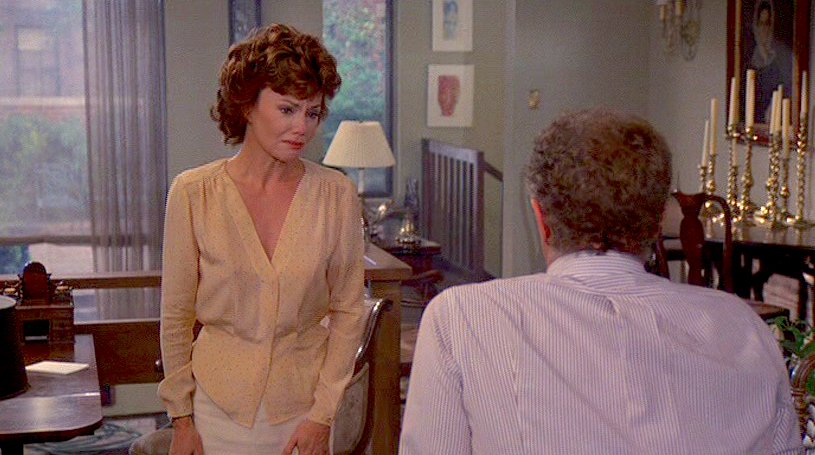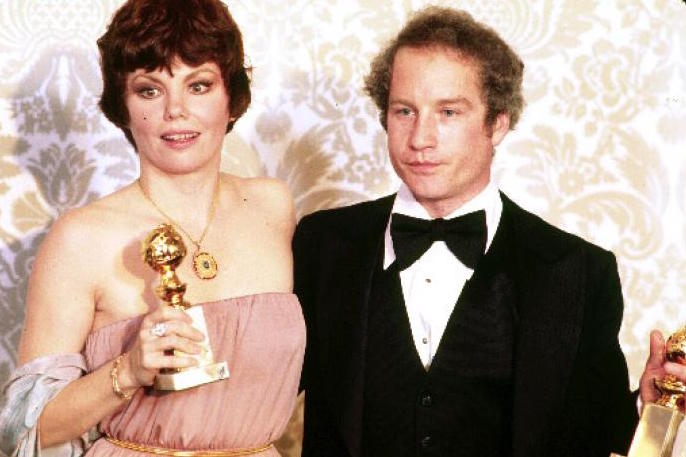by Eric Blume
 Marsha Mason speaking at an event in 2015Today marks the 75th birthday of Marsha Mason, one of Hollywood’s leading ladies from the 1970s. Celebrating her is easy because she brought a lot of light and joy to screens for a decade and a half with her toothy vibrance and warm energy.
Marsha Mason speaking at an event in 2015Today marks the 75th birthday of Marsha Mason, one of Hollywood’s leading ladies from the 1970s. Celebrating her is easy because she brought a lot of light and joy to screens for a decade and a half with her toothy vibrance and warm energy.
It’s strange to think that contemporary young movie audiences don’t even know Mason, since she scored four Oscar nominations for Best Actress over nine years! Her first nomination came in 1973 for Mark Rydell’s Cinderella Liberty, where she plays a prostitute with an 11-year-old mixed race son. Her rapport with co-star James Caan and the young actor who plays her son has a scrappy grace to it, and it’s a winning performance.
Mason’s other three Oscar nominations came from roles written or tailored expressly for her by her then-husband, Neil Simon...
 Marsha Mason in CHAPTER TWO (1979)
Marsha Mason in CHAPTER TWO (1979)
It’s difficult to remember how hugely successful Neil Simon was for well over two decades. He churned out one Broadway hit after the next, and many of them went on to become hit film versions. He was a “brand” that audiences knew, understood, and treasured. And he had the stature and commercial power to make sure his wife was cast: imagine if we could have a big-screen treat every two years for Carrie Coon written by Tracy Letts!
Simon’s writing had a sort of frame around it, where the characters were a blend of naturalistic and stylistic: they were characters who talked like you wish you always talked, and they existed somewhere between sitcom and reality (there were exceptions to this, of course, amongst his finest writing). Mason’s acting in her three nominated roles—1977’s The Goodbye Girl, 1979’s Chapter Two, and 1981’s Only When I Laugh—matched the style of this writing. Her acting, as well, was vaguely self-aware, and pitched just beyond sitcom, just under something from the stage. In some ways, it’s hard to know how much her approach and execution were in service to Simon’s writing or how much it was her own.
 Regardless, Mason does fine work in these three films. The first two of the trio are romantic comedies that have not aged particularly well. But it’s a tribute to Mason’s savvy and skill that she takes somewhat annoying characters and brings them both a humanity and a depth.
Regardless, Mason does fine work in these three films. The first two of the trio are romantic comedies that have not aged particularly well. But it’s a tribute to Mason’s savvy and skill that she takes somewhat annoying characters and brings them both a humanity and a depth.
While Only When I Laugh remains, in many ways, a relic from the early 80s which is not lit or shot particularly well, and feels movie-cute in tone, Mason kills it playing an alcoholic actress who lost custody of daughter Kristy McNichol (!), but has a summer to rebuild the relationship while she opens a new Broadway show basically playing herself. Mason effortless nails her comic timing on all of Simon’s jokes, but the performance goes further. In showing us this woman who is almost always acting, and is so afraid to let anyone see who she truly is, Mason carefully calibrates who she lets in, when she lets them in, and why. Simon wrote her a beautiful mini-aria that comprises a 20-minute stretch where she relapses and shows up at her friend Joan Hackett’s party and embarrasses herself and everyone. She plays it to the hilt, handling the rollercoaster turns with precision, and finding the uncomfortable truth behind the character’s shame. Her big scene with the flinty, glorious Hackett is the film’s highlight: there’s joy in their duet and it soars.
Mason’s particular gift was delivering on the commercial demands of the project while plumbing downward to add substance to the piece. After the four Oscar nominations, Mason sadly had a short ride as a leading actress, appearing in only two major feature film roles: 1983’s Max Dugan Returns (another Simon vehicle) and Clint Eastwood’s 1986 Heartbreak Ridge. She went on to an Emmy nomination on Frasier and several Broadway roles, including a revival of Night of the Iguana opposite Cherry Jones and Impressionism with Jeremy Irons and Joan Allen.
 The Goodbye Girl (1977) won both Comedy Globes for Marsha & Richard. Only Richard followed up with an Oscar
The Goodbye Girl (1977) won both Comedy Globes for Marsha & Richard. Only Richard followed up with an Oscar
Here’s wishing Marsha Mason a wonderful three-quarter-century day. And here’s hoping that someone comes along to give her a juicy comic or dramatic turn in her late career. She deserves it, and it would be a delight to see.